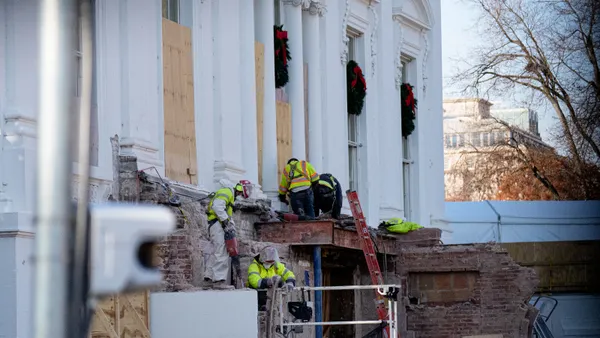Dive Brief:
- A U.S. District Court judge in Texas issued a preliminary injunction against the Department of Labor Monday to stop it from implementing its so-called union "persuader rule," The Hill reported.
- Business groups sued to block the rule, which requires employers to report any "actions, conduct or communications" related to employee unions or collective bargaining, even if those communications are with its own legal counsel. The previous rule only required disclosure if employer-hired outside consultants interacted directly with employees.
- In his order, U.S. District Judge Sam Cummings said a nationwide injunction "was appropriate" and that "the chilling of speech protected by the First Amendment is in and of itself an irreparable injury."
Dive Insight
Construction trade groups have also filed suit against the Department of Labor over the rule, which was scheduled to go into effect July 1, and, as expected, industry reaction to the Texas ruling was positive. National Association of Home Builders Chairman Ed Brady said in a press release that the rule could keep employers from seeking legal advice and is "another example of regulatory overreach that not only violates small business owners’ First Amendment rights, but also places burdensome reporting requirements that would result in significant costs and questionable legal implications."
Those groups in favor of the rule said it allows employees to keep tabs on employer actions during attempts at unionization, and AFL-CIO President Richard Trumka told the Washington Business Journal in March that employees who are trying to unionize "deserve to know who their employer is hiring and exactly how much they are spending to discourage workers from forming a union."
This latest loss for pro-union groups comes at a time of a reported overall dwindling of union numbers and diminished influence. According to The Wall Street Journal, several large construction companies in New York City — a traditional union stronghold — have chosen not to renew certain collective bargaining agreements for private work, a sign that they’re planning to use less expensive nonunion workers on future projects and an indication that unions might be "losing their grip" on that private market.










